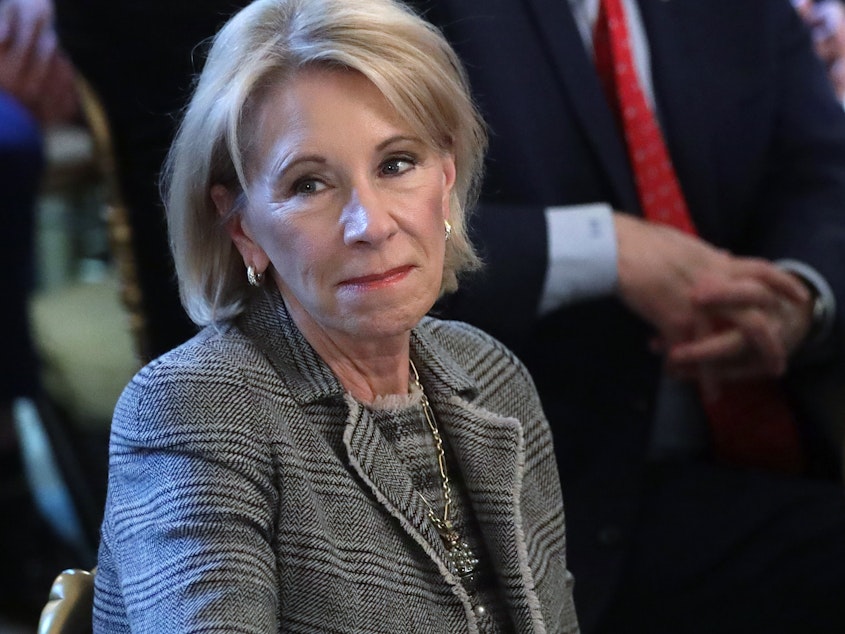Education Dept. Says Disability Laws Shouldn't Get In The Way Of Online Learning

The vast majority of states have closed public schools in an effort to slow the spread of the coronavirus, and many districts are now faced with a dilemma: how to provide remote learning to students without running afoul of civil rights and disability laws.
"Some of our students have incredibly diverse needs in the special education category," Atlanta Public Schools Superintendent Meria Joel Carstarphen told Weekend Edition. "Some of our students have one-to-one support when they're in school, so imagine if you don't have that at home. It becomes virtually impossible for us to do that. We're seeing that there's still a lot of constraints on a school district to kind of do things the old way when we're in unprecedented times."
According to federal law, children with disabilities have a right to a free, appropriate public education whenever and wherever schools are operating. An estimated 14% of public school students receive special education services in the U.S. But as schools shift to online tools such as Google Classroom and Zoom, some of those students — who may be nonverbal, or who may be used to receiving one-on-one support — may not be able to adapt or follow along. These concerns have prompted many districts, like Chicago Public Schools, to only provide "enrichment" while schools are closed, with no "new learning," and no grading or tracking of attendance.
But a new fact sheet from the U.S. Department of Education declares this reading of disability law to be "a serious misunderstanding."
In bold type, the publication declares: "To be clear: ensuring compliance with the Individuals with Disabilities Education Act (IDEA) ... and Title II of the Americans with Disabilities Act should not prevent any school from offering educational programs through distance instruction."
Sponsored
The department says that in this time of "unprecedented national emergency," some services to students with disabilities — such as audiovisual aids and extra time for exams — can and should be provided using distance learning. For other services that cannot be provided, such as hands-on physical therapy, students should be evaluated when schools reopen to see if they should receive "compensatory services."
Advocates warn the burden to request these compensatory services may fall to parents, who will need to document what's happening at home during the school closures. [Copyright 2020 NPR]



